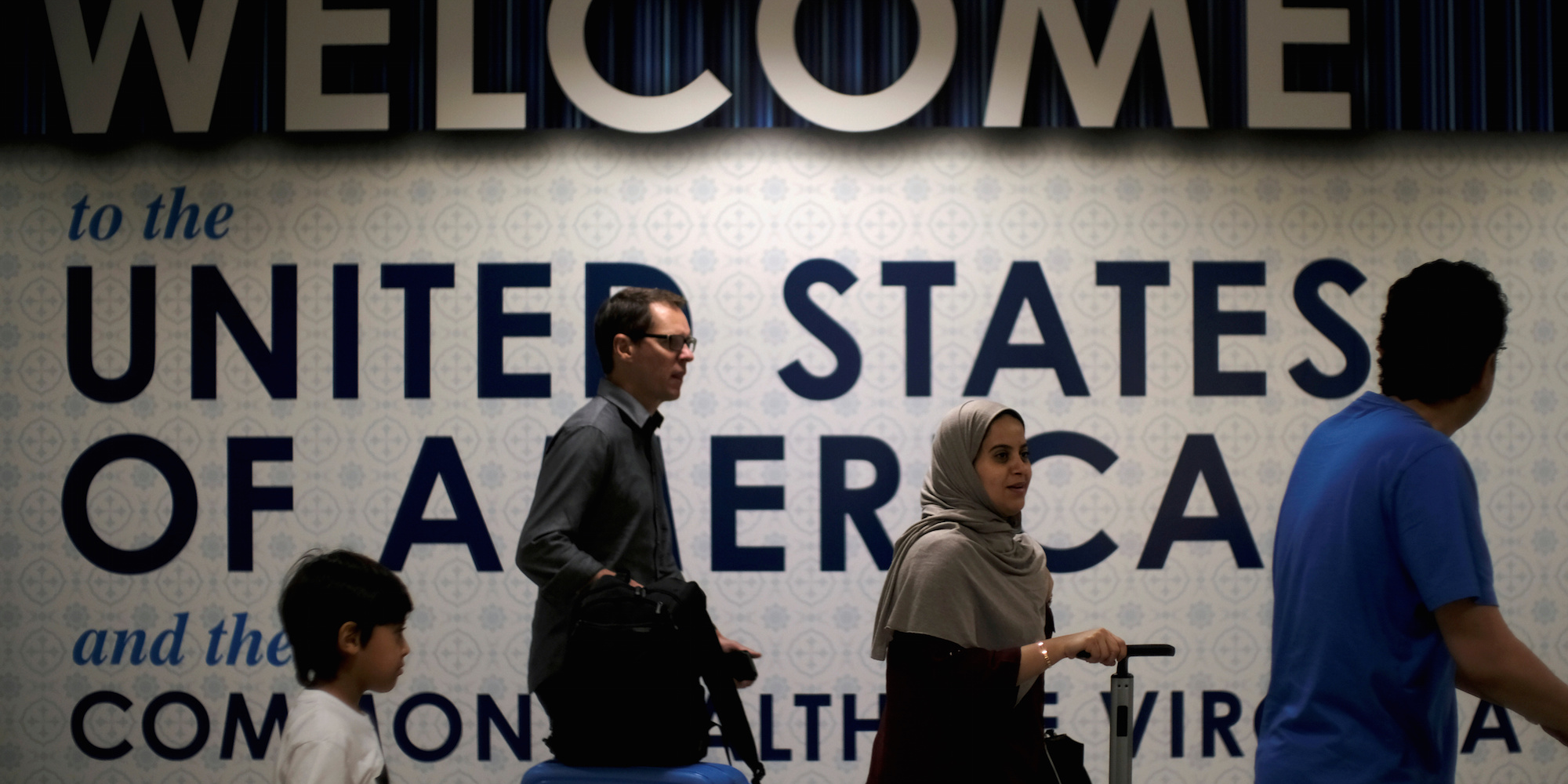- Federal appeals court judges in Seattle heard arguments Wednesday on President Donald Trump’s third travel ban.
- The ban targets people from eight countries, imposing various restrictions on their entry to the United States.
- The arguments were highly anticipated, after the Supreme Court appeared to hand a small victory to the Trump administration two days earlier.
The Ninth Circuit Court of Appeals in Seattle heard fiery arguments on Wednesday regarding the latest iteration of President Donald Trump’s travel ban, which the Supreme Court on Monday allowed to fully take effect.
The ban targets roughly 150 million residents of eight nations – six of which are majority-Muslim – and imposes varying restrictions on their entry to the United States.
The case was first brought by the state of Hawaii, which convinced Judge Derrick Watson to block its implementation in October – as he had done with Trump’s previous two travel bans. Wednesday’s arguments were highly anticipated after the Supreme Court on Monday appeared to hand a small victory to the Trump administration in allowing the ban to be enforced pending the two federal appeals.
The Ninth Circuit’s three-judge panel, all of whom were Clinton appointees, appeared at times skeptical of the government’s arguments. They frequently interrupted an attorney representing the Trump administration who argued that the eight countries named in the ban have “inadequate information-sharing practices” or other factors that warranted tailored entry restrictions.
"The president was setting restrictions in a manner that was designed to encourage countries to improve their practices," Justice Department attorney Hashim Mooppan said, arguing that the third ban was written following an extensive review of data that foreign governments have collected on their travelers.
But the judges questioned Mooppan on whether the Trump administration recognized any limits to its authority to use a federal statute giving the president the power to determine that certain classes of foreigners are detrimental to the interests of the US and can warrant restrictions on their entry.

Mooppan likened the travel ban to similar measures former presidents Jimmy Carter and Ronald Reagan had used to restrict travel from Iran during the hostage crisis in 1980 and from Cuba in 1985, respectively.
The judges asked fewer questions, however, of Neal Katyal, the attorney representing the challengers to the ban. He called Trump's ban "unprecedented and sweeping," and argued that the president has not made any findings to support his conclusion that the entry of those travelers identified in the ban would harm the US.
The Trump administration's "argument is, essentially, the president can take an iron wrecking ball to the immigration code, that finely reticulated system that Congress has done, and put the president in the driver's seat," Katyal said. "That's certainly - it may be some constitution, it is not the Constitution of the United States."
Katyal went on to argue that the government had presented "zero language" or evidence that the current vetting process for travelers to the US was failing.
"The burden is always on the individual visa applicant to come to the US, and if you can't show that bad folks are coming here, there is no finding," he said. "As long as the individualized vetting system is working, that's enough."
The court will issue an opinion as soon as is practical, Judge Ronald Gould said before adjourning.
"I think the Supreme Court has asked us to do that, so we shall comply," he said, drawing laughter from the audience.
A separate challenge to the travel ban will be heard in the Fourth Circuit Court of Appeals in Virginia on Friday.

